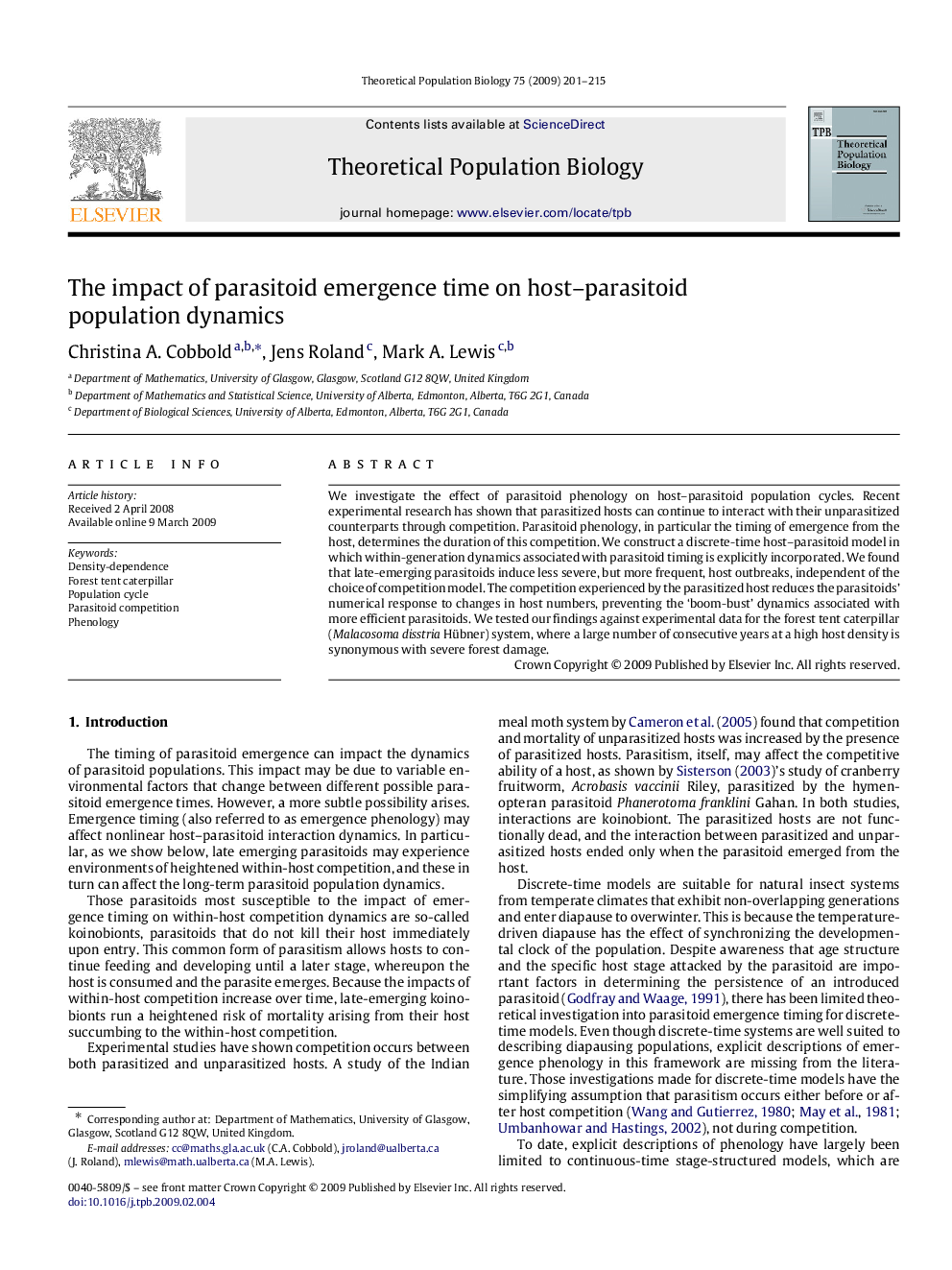| کد مقاله | کد نشریه | سال انتشار | مقاله انگلیسی | نسخه تمام متن |
|---|---|---|---|---|
| 4502947 | 1624172 | 2009 | 15 صفحه PDF | دانلود رایگان |

We investigate the effect of parasitoid phenology on host–parasitoid population cycles. Recent experimental research has shown that parasitized hosts can continue to interact with their unparasitized counterparts through competition. Parasitoid phenology, in particular the timing of emergence from the host, determines the duration of this competition. We construct a discrete-time host–parasitoid model in which within-generation dynamics associated with parasitoid timing is explicitly incorporated. We found that late-emerging parasitoids induce less severe, but more frequent, host outbreaks, independent of the choice of competition model. The competition experienced by the parasitized host reduces the parasitoids’ numerical response to changes in host numbers, preventing the ‘boom-bust’ dynamics associated with more efficient parasitoids. We tested our findings against experimental data for the forest tent caterpillar (Malacosoma disstria Hübner) system, where a large number of consecutive years at a high host density is synonymous with severe forest damage.
Journal: Theoretical Population Biology - Volume 75, Issues 2–3, March–May 2009, Pages 201–215